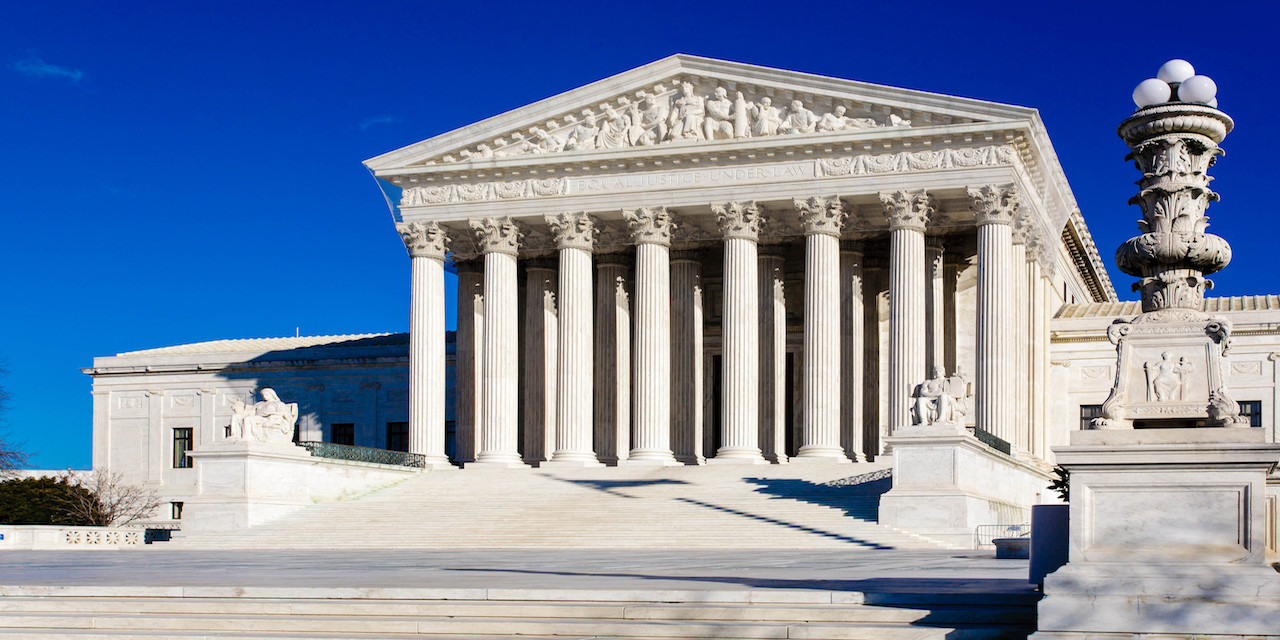Editor's Note: This article has been updated and revised from a previously published version, now reflecting the decision by the U.S. Supreme Court to deny a hearing on the lawsuit.
Gov. JB Pritzker’s decision to unveil public health guidelines for religious worship services has derailed a possible date before the U.S. Supreme Court sought by two churches suing him over Pritzker's use of emergency powers to restrict church services in response to the COVID-19 pandemic.
Late in the day on May 29, the U.S. Supreme Court issued an order denying the request for an emergency injunction sought by the churches against Pritzker, barring him from using his authority to regulate religious gatherings, which the churches had argued was unconstitutional.
The Supreme Court cited new "guidance" issued by the Illinois Department of Public Health concerning worship services, which had been issued on May 28, the same day the churches appealed to the high court.
The order was issued without prejudice, meaning the churches would be free to again petition the Supreme Court should Pritzker again attempt to lock down church services in the future.
The order came despite the churches' continued attempt to secure a hearing before the high court, as they argued the governor merely changed his policies to avoid a ruling that would deprive him of the future ability to ratchet up restrictions on churches in the future on a “whim.”
On May 29, attorneys for Elim Romanian Pentecostal Church, of Chicago, and Logos Baptist Ministries, of Niles, filed a brief with the Supreme Court, responding to Pritzker’s contention the churches’ case is now moot.
Pritzker, through the Illinois Attorney General’s Office, had filed a brief the evening before. In that filing, Pritzker told the high court he intended to lift mandatory 10-person capacity restrictions on worship services when his executive order expired on May 29. Rather, those have been replaced by “guidelines” issued by the Illinois Department of Public Health, intended to help churches find ways to host worship services while helping to slow the spread of COVID-19.
The governor said those policy changes relieve the need for the Supreme Court to step in.
The churches, however, urged the high court to not allow the governor to simply walk away.
They argued Pritzker has repeatedly defended his size limits on religious worship services, and has shown little regard for their concerns over the impacts of Pritzker’s orders on the religious freedoms of churches and worshippers, alike.
Without a ruling or order from the Supreme Court, they said, Pritzker would be free – if not likely - to reimpose restrictions again at a later date, should Illinois experience a resurgence of COVID-19, or some other health metric fail to meet Pritzker’s liking.
They said the “Worship Guidance” issued by IDPH contradicts Pritzker’s previous statements on the need for restrictions on worship services, and their legal and constitutional validity. Further, they said the IDPH guidelines disagrees with Pritzker’s prior orders and his five-phase “Restore Illinois” statewide reopening plan.
“If, as the Governor claims, the Worship Guidance is consistent with Restore Illinois, it is only because Restore Illinois on its face reserves absolute discretion to the Governor to implement all or none of it, or to change it, according to his schedule and whim,” the churches wrote in their May 29 brief.
“… Not only has the Governor not taken the position that he will not reinstate his 10-person worship limitation, but there is evidence he intends to reinstate restrictions within months under certain circumstances.”
The churches noted Pritzker and Attorney General Kwame Raoul have also not backed down from their assertions that the governor has the power to regulate the size and worship styles of church services and other religious gatherings.
The churches filed suit in May, asserting Pritzker’s executive orders restricting worship services violated their rights under the U.S. Constitution and state and federal religious freedom laws.
The Elim congregation said they have also been the targets of enforcement actions by the city of Chicago under Pritzker’s orders.
To this point, federal judges in Chicago have upheld Pritzker’s orders as constitutional, saying they did not single out churches, but were applied to other “comparable” businesses, including theaters and concert halls.
Those businesses remain closed.
However, the churches said churches have been designated as “essential” organizations under Pritzker’s orders, and the free exercise of religion has been considered an “essential” activity. No other essential activities and organizations have been subject to the same restrictions, the churches argued.
After failing to secure temporary restraining orders in federal district court and from the U.S. Seventh Circuit Court of Appeals, the churches appealed to the Supreme Court, seeking an emergency order blocking Pritzker from enforcing his worship service restrictions.
Pritzker was ordered by Supreme Court Justice Brett Kavanaugh – the justice assigned to handle such petitions originating in the Seventh Circuit, which includes Illinois, Indiana and Wisconsin – to respond to the churches’ petition.
Pritzker did so, but not before the IDPH unexpectedly issued its new “Worship Guidance,” to replace the governor’s mandatory restrictions.
The churches argue there is ample legal precedent to prevent Pritzker from using that sudden policy shift, executed moments before he was ordered by a Supreme Court justice to defend his position, to end the legal challenge to his authority to regulate churches.
To allow Pritzker to simply walk away now would embolden him and other governors to take allegedly unconstitutional actions against churches, and then, when challenged, simply change the policy to moot the cases and avoid any consequences.
“… The Governor’s sudden change has no permanency or force of law, and both his public statements and his new policy strongly signal an impending return to his old ways,” the churches wrote.
“Absent a pronouncement from … the Court, there can be no reasonable expectation that the Governor will not once again infringe Churches’ constitutional rights.”
The churches are represented by attorneys from Liberty Counsel, of Orlando, Fla., and the firm of Mauck & Baker, of Chicago.
